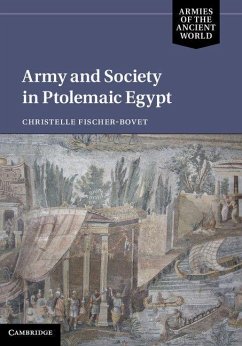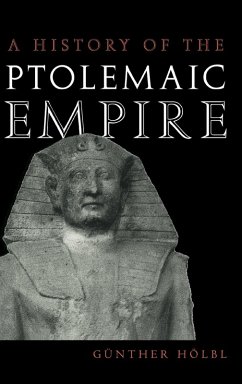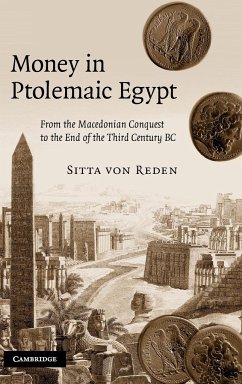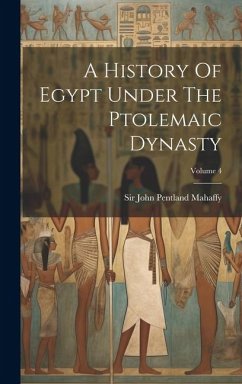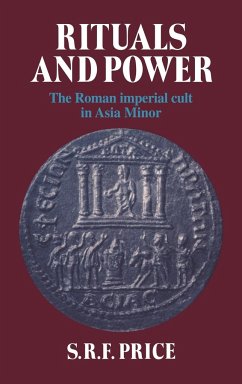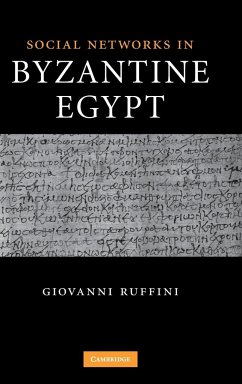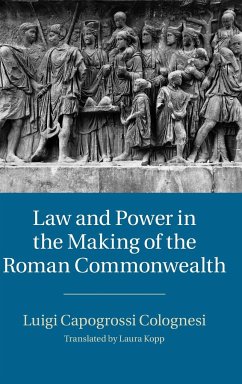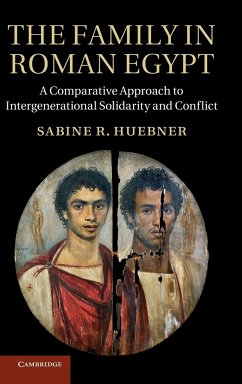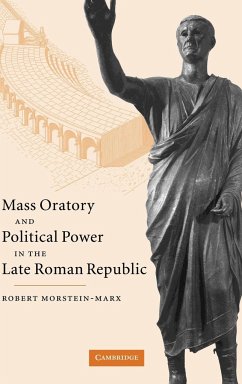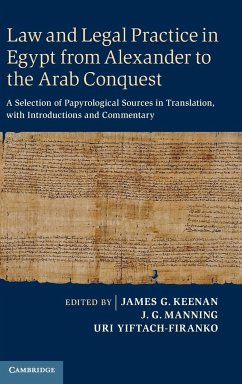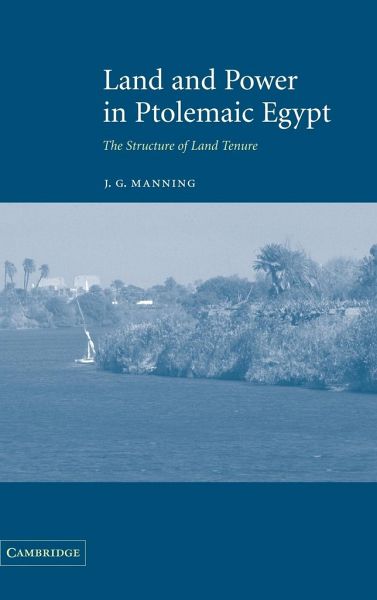
Land and Power in Ptolemaic Egypt
The Structure of Land Tenure

PAYBACK Punkte
61 °P sammeln!
Offers a new framework for understanding the structure of the Ptolemaic state and economy.This history of land tenure under the Ptolemies explores the relationship between the new Ptolemaic state and the ancient traditions of landholding and tenure. Departing from the traditional emphasis on the Fayyum, it offers a coherent framework for understanding the structure of the Ptolemaic state, and thus of the economy as a whole. Drawing for the first time on both Greek and demotic papyri, as well as hieroglyphic inscriptions and theories taken from the social sciences, Professor Manning argues that...
Offers a new framework for understanding the structure of the Ptolemaic state and economy.
This history of land tenure under the Ptolemies explores the relationship between the new Ptolemaic state and the ancient traditions of landholding and tenure. Departing from the traditional emphasis on the Fayyum, it offers a coherent framework for understanding the structure of the Ptolemaic state, and thus of the economy as a whole. Drawing for the first time on both Greek and demotic papyri, as well as hieroglyphic inscriptions and theories taken from the social sciences, Professor Manning argues that the traditional central state 'despotic' model of the Egyptian economy is insufficient. The result is a subtler picture of the complex relationship between the demands of the new state and the ancient, locally-organized social structure of Egypt. By revealing the dynamics between central and local power in Egypt, the book shows that Ptolemaic economic power ultimately shaped Roman Egyptian social and economic institutions.
Table of content:
Part I. Issues and Historical Background: 1. Issues and methodologies; 2. The Ptolemaic state and its antecedents; Part II. Regional Case Studies of Land Tenure: 3. The land tenure regime in Upper Egypt; 4. The land tenure regime in the Fayyum depression; Part III. Interpretation: 5. The Ptolemaic state, the land tenure regime, and economic power; 6. The private transmission of land; 7. Conclusions; Appendices.
This history of land tenure under the Ptolemies explores the relationship between the new Ptolemaic state and the ancient traditions of landholding and tenure. Departing from the traditional emphasis on the Fayyum, it offers a coherent framework for understanding the structure of the Ptolemaic state, and thus of the economy as a whole. Drawing for the first time on both Greek and demotic papyri, as well as hieroglyphic inscriptions and theories taken from the social sciences, Professor Manning argues that the traditional central state 'despotic' model of the Egyptian economy is insufficient. The result is a subtler picture of the complex relationship between the demands of the new state and the ancient, locally-organized social structure of Egypt. By revealing the dynamics between central and local power in Egypt, the book shows that Ptolemaic economic power ultimately shaped Roman Egyptian social and economic institutions.
Table of content:
Part I. Issues and Historical Background: 1. Issues and methodologies; 2. The Ptolemaic state and its antecedents; Part II. Regional Case Studies of Land Tenure: 3. The land tenure regime in Upper Egypt; 4. The land tenure regime in the Fayyum depression; Part III. Interpretation: 5. The Ptolemaic state, the land tenure regime, and economic power; 6. The private transmission of land; 7. Conclusions; Appendices.





